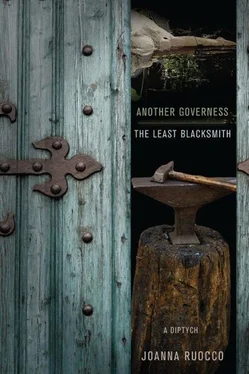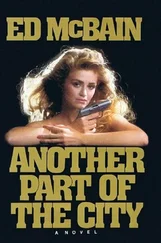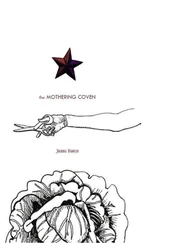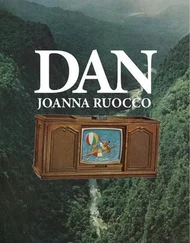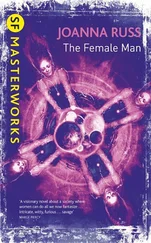My brother comes to make sure I have emptied my dish. I have emptied my dish. It is time to work. My brother takes a leather apron from the nail. He hangs the leather apron from my neck. He has not cut the leather apron to my size like he promised. The skirt of the apron touches the ground. I have to be careful or I will trip. A striker should not trip. It is only excusable to lie on the floor of the forge one time. Our father lay on the floor of the forge one time. He lay on his back and his hair was on fire. His eyelids swelled. His cheeks swelled. The skin on his cheeks split. Fluids ran down the slopes of his cheeks, toward the ears and the chin. My brother doused our father with the water from the tub. Thin black smoke rose from our father's face. My brother sent me to town so I did not have to breathe our father's smoke.
It is difficult to remember faces. To picture our father I look at my brother. When my brother turns his back, I forget how our father looked. I remember our father on his back on the floor. The tip of his nose had been burned away on the coals. There was a hole in our father's nose. It was big enough to hold a cigar. That was not how our father's face looked. Our father's face was changed by the hearth. Only his hands were unchanged. They were big, with dirty grains in the skin. The doctor put our father's hand on his chest. He put the cigar in our father's hand. According to the doctor, this was a natural pose for our father, the pose of our father as a small boy on the wharves. Our father always held a cigar or a knife on the wharves with the doctor. The doctor remembered our father best in this pose.
A storm must have blown in from the ocean after dark. The sky is dense and black. In the flashes of lightning, the dark skin beneath my brother's eyes looks burned. His lips look burned. He banks the fire for the night. In the house, he eats cold meat from the pan. I open the newspaper. I find the obituary for our father. I had not known the date our father was born. I say the date to my brother. My brother already knew the date. He says he has the same birthday as our father. My brother tells me the year he was born. I do the figures in my head. Our father was exactly the age my brother is now when my brother was born. I did not realize our father had my brother so young. My brother does not say anything more. I wonder if he is doing the figures in his head.
I read our father's obituary to my brother. I am not mentioned in our father's obituary as a survivor of our father. My brother says newspapers have limited space for obituaries. It is not practical to list every survivor. My brother is our father's survivor. My brother says he is glad he is listed. The only difference between our father and my brother is the year they were born. The year my brother was born is not mentioned in the obituary. Only my brother's name is mentioned. When they read my brother's name in our father's obituary, people will see that there is no difference between the deceased and the survivor. There has been no interruption in service at the forge. My brother does not recognize the address for the memorial service. I tell him it is the address of the doctor's office. My brother has no interest in going to the doctor's office for the memorial service. He says it is not appropriate for the survivor to be in the same place as the deceased.
Before I go to bed my brother wants me to put him in my mouth. He opens his pants and turns his chair to the side. If he did not turn his chair to the side I would have had to crawl under the table to reach my brother. I rest one hand on the edge of my brother's chair and one hand on the table. I wish my mouth were not so small and dry. My brother is patient with me, but he is disappointed. He has to use his hand while I crouch by the chair.
Lying in bed, I cannot fall asleep. I took longer than I should have near the wharves and my brother had to use his hand. I do not know how to improve myself. If I had followed the doctor into his office perhaps he would have given me one of his capsules. The doctor would not have given me a capsule. Doctors only offer capsules to their patients. He might have given me a capsule for my brother. I decide to stay up all night so I will be awake before my brother in the morning. I will be ready to go to work in the forge. I wake up with a start when my brother shakes my shoulder. He has already fried the meat for breakfast. The air through the windows is salty and fresh with last night's storm.
My brother does not know why there are no customers. He dresses three axes. He forges hoe after hoe. He paces to the double doors of the forge. It is a clear day. On clear days, you can see the peninsula across the bay, the faint gray outline of the mountains. My brother calls to me. He can see the peninsula. I join him at the double doors. The day is exceptionally clear. I can see the stone monasteries set high on the mountains. The peninsula is long and thin. It stretches across the horizon. I do not know where the peninsula attaches to the coast. It must attach some place far away, in the wilderness to the south. The peninsula is not continuous. There are breaks in the peninsula through which ships enter the bay. The ships in the bay fly bright civil ensigns. They have come from far away, across the ocean. They move very quickly through the waters of the bay. The foreigners like to cross the bay at alarming speeds. The speeding ships make crossing from the peninsula to the town dangerous for the monks. The boats of the monks are crudely built, with low sides, and they take on water when they cross the rough waves of the bay. The monks build laughable boats. It is a miracle that their boats stay afloat on the bay.
The foreigners play a game with the monks. The captains of the ships try to drive their ships over the boats of the monks. The foreigners gather on the decks of the ships. They laugh. They look down to the water to see if there are small boats tossing in the wakes of the ships. Monks wash up by the wharves of the town. The doctor's practice is thriving. He has more and more opportunities to use his medical equipment. It is too bad all of the monks died in the same way. It must not be challenging for the doctor. I am sure that the monks do not produce big packets of paper like our father. The monks do not even receive obituaries in the newspaper. Instead there is a tally, a tally of the monks who have washed up by the wharves. This is how the foreigners keep score. Games with the monks keep the captains of the ships from becoming bored in a town as small as ours.
I tell my brother about the monk I saw by the wharves. The monk had not washed up by the wharves. He was lucky and had not lost the game to a captain. He had arrived alive by the wharves of the town. He did not lie face down. He crouched by his boat on the mud. I describe the iron talisman. My brother is not surprised by my description. He says the monks make their own talismans. There is a forge on the peninsula. A long time ago, the man who sold our father's father the forge left the town for the peninsula. He became a monk. He built a new forge on the peninsula. He taught the monks to forge talismans. The monks know how to work iron thanks to the man who sold our father's father the forge.
My brother closes the double doors of the forge. I look at the iron door pulls. They are the same as the monk's talisman. That is why the monk's talisman looked familiar. I feel close to the monks now that I know their talismans are modeled on the pulls of the double doors.
The man who sold our father's father the forge had lost his family to a disease. They could not keep any fluids inside their bodies and even their skin lost its moisture and shrank. It was a common disease. The man buried his family behind the forge. He had no living relatives and so he no longer had any hope for the future of the forge. My brother says that is why the man sold our father's father the forge. He did not care that our father's father changed the name of the forge. The man's name was no longer important. He decided to become a monk on the peninsula. Monks do not have names. They are called brothers. Brother is how they greet each other unless they have taken a special vow. In that case, they exchange only gestures when they meet.
Читать дальше
